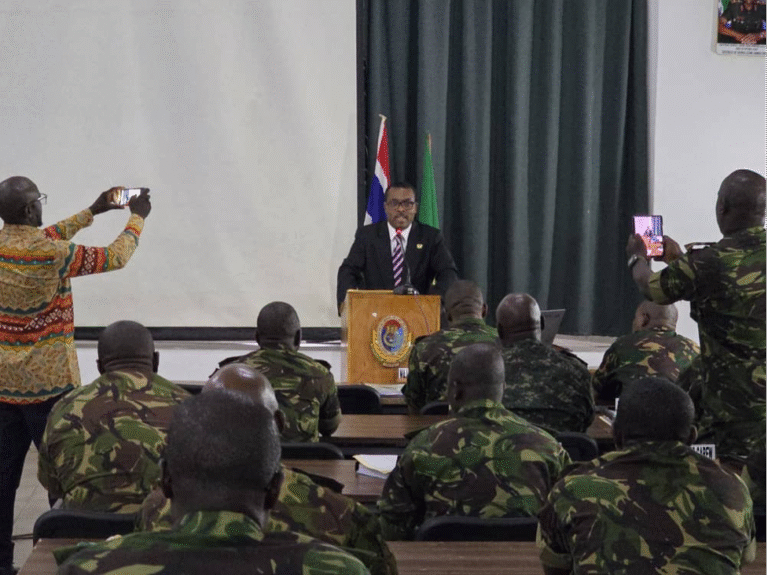By Hassan Gbassay Koroma (Intern, SLRSA)
The Sierra Leone Road Safety Authority (SLRSA), on Saturday, 13th September, held a conflict prevention dialogue involving the SLRSA Enforcement Corps, the Sierra Leone Police (SLP), and the leadership of the Commercial Bike Riders Union.
The purpose of the dialogue was to assess the progress made in implementing the communiqué signed by the three parties in 2024. The agreement aimed to promote a healthy working relationship through conflict prevention and frontline negotiation.
In June 2024, the Ministry of Youth Affairs, in collaboration with the United Nations Development Programme (UNDP), facilitated a national dialogue on conflict prevention and negotiation strategies between bike rider representatives and state authorities namely the SLP and the SLRSA. The initiative focused on equipping both security personnel and executives of the bike riders’ union with tools to resolve conflicts peacefully.
Speaking at the event held at the SLRSA Headquarters on Kissy Road, the Director of Training at SLRSA, Mans Bangura, highlighted that many youths turned to commercial bike riding for income after the country’s civil war.
According to her, bike riders sometimes come into confrontation with enforcement officers, which can lead to the loss of lives and property. She noted that it was in response to this recurring issue that the Ministry of Youth Affairs, supported by the UNDP, implemented a program to empower youth bike riders as sustainable agents of peace in Sierra Leone.
“This meeting is to assess how far the Sierra Leone Police, the Sierra Leone Road Safety Authority Corps, and the Commercial Motorbike Riders have gone in implementing the communiqué they signed at Bintumani in 2024. It also allows everyone to speak their minds,” she stated.
She further emphasised the importance of bike riders in society, especially in providing transportation to hard-to-reach areas. She added that commercial bike riding remains one of the largest forms of employment in the post-war period.
Also speaking at the event, Director of Enforcement at SLRSA, Augustine Kaitongi, echoed similar sentiments. He noted that the end of the civil war led to a major unemployment crisis, prompting many young people to create jobs for themselves by venturing into commercial bike riding.
“However, the lack of understanding between commercial bike riders and law enforcement institutions has always been a challenge,” he said.
He commended the conflict prevention training supported by UNDP, describing it as a necessary step toward building mutual awareness and respect. “The training promotes and encourages respect for the law and tolerance among all stakeholders,” he added.
Kaitongi further noted that the SLRSA has signed several road safety agreements, all aimed at improving safety and reducing traffic-related accidents across the country.
Chief Inspector of Police, Abdul Rahman Sankoh, acknowledged that commercial motorbike riders form a significant part of Sierra Leone’s informal transport sector. He said they employ a large number of youths and serve areas that are poorly covered by formal public transport services.
However, he pointed out that the rapid growth of the sector has led to friction between riders and law enforcement, particularly regarding regulation, traffic enforcement, and access to restricted zones.
He called on his fellow law enforcement officers to exercise empathy and apply a human lens when handling minor traffic issues.
On behalf of the riders, the President of the Commercial Bike Riders Union, Ishmeal Sandy, said the union has been actively conducting training for its members. He stressed the importance of being law-abiding and respectful towards law enforcement.
Sandy noted that commercial bike riding is the only job sector that doesn’t require a formal job application anyone who can afford a bike can join.
He encouraged all riders to register with the union, which has also set up a disciplinary department to handle complaints and penalise riders who display misconduct







